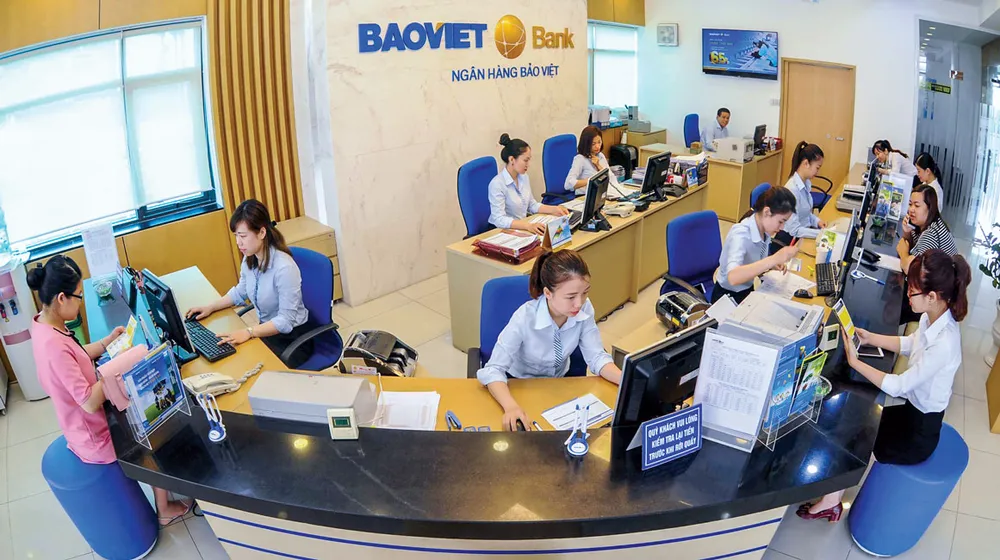
The Prime Minister has approved a plan to restructure the securities market and the insurance market by 2020 with a vision until 2025. Once again, most of the commercial banks have made promises to list, but it is yet to be seen if they will keep to their word.
Unkept promises
In 2014, the State Bank of Vietnam (SBV) had asked all commercial banks to list on the stock exchange. The following year again, Circular 180 was issued by the Ministry of Finance calling all unlisted banks to register their securities transactions. All public and commercial banks with unlisted shares were asked to get listed on UPCOM by 31 December 2016. The latest government regulations now again require all commercial banks to be listed by the end of 2020, after the Prime Minister approved a plan in late February to restructure the securities market and the insurance market by 2020 with a vision until 2025.
Deadlines have continually been extended because banks have failed to get listed as promised. Since 2014, several banks have repeatedly announced at Annual General Meetings (AGM) their plans to get listed, but the Board of Directors of these unlisted banks have found excuses to explain the delays. By the end of 2019, only 18 out of 35 banks had their shares listed, and only one bank, VietCapital Bank, has listed in the first nine months of 2020.
Now, a new deadline is nearing, and it is apparent that several banks will still not keep their promise to get listed. For instance, MSB registered its IPO on HOSE in late 2019, but in its 2020 AGM decided to delay having its shares listed, explaining that the market conditions were not right due to the impact of the coronavirus pandemic. ABBank has also delayed getting listed on HOSE, using the excuse that it was moving its head office from Ho Chi Minh City to Hanoi. This bank is expected to complete registration of its central securities depository and transactions on UPCOM in the event it does not list its shares in 2020.
SeABank shareholders have approved plans to get listed on HOSE in 2020, after failing to get listed in the past two years. NamABank, after several delays over the past few years, has plans to have all its shares listed on HOSE by the end of the year. OCB shareholders have also approved such a plan, but are still unsure when to get their shares listed. Some banks including VietABank, PVcomBank and BaoViet Bank have not made any plans yet to get their shares listed.
Banks evade listing
Banks operate business activities based on trust. When customers and investors believe in the credibility of a bank, it has a huge opportunity to become a success. A bank can establish this trust by getting its shares listed on a stock exchange. Once listed, a bank does not only earn benefits as a listed business, but offers transparency of information to people and investors in the market. This is also the best way for a bank to show its compliance with market rules, which can facilitate efforts to restructure, modernize and provide high quality products in the market.
The banks have actually blamed unfavorable conditions as excuse for delays in getting their shares listed. In fact, the banks were quite slow in getting listed even at the height of the securities market during the 2017 to 2018 period. Ten banks planned to have their shares listed in 2017, but only four, namely, VPBank, VIB, KienLongBank and LienVietPostBank actually made it. Later, a dozen banks planned to do the same in 2018, but only three, Techcombank, HDBank and TPBank managed to reach their goal.
As explained by a financial expert, banks weigh the time to get listed because they must ensure their listed shares are not below denomination and ensure that some investors will buy their shares. If their IPO fails, the bank's reputation will be badly affected and will have a negative effect on its calls for more capital in coming time. Another primary reason is that some banks still have lots of problems like poor business activities and other disadvantages, and they are afraid to make all such shortcomings known to the public.
Competent agencies have actually been responsible for the banks delay in getting listed. Over the last few years, SBV, the Ministry of Finance and the State Securities Commission of Vietnam (SSC) have urged banks to fulfil their obligations instead of taking strong measures such as giving them serious fines. This is why officials of the banks have only voted at their AGMs for getting listed but then made excuses for delays. This time, the deadline for the banks to get listed is the end of this year as mandated in the plan approved by the Prime Minister, yet many banks are still trying to evade from fulfilling this responsibility.
There are several opinions on why the banks made promises but did not keep to their word. However, now the State Bank of Vietnam and the State Securities Commission of Vietnam must supervise the process and impose severe levy and heavy fines on banks that are not adhering to a repeated call to list and be more accountable to both consumers and investors.




















